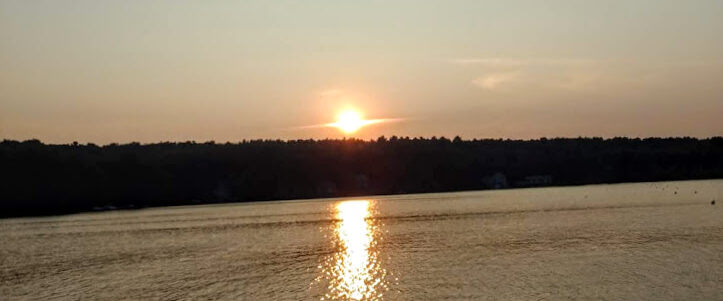We all want a safe, happy, healthy experience on the lake. Below are two links, one to the Boating Safety Handbook and the other to the Massachusetts Environmental Police Boating Safety Website. One of our first concerns when on the lake should be safety for all while we are enjoying this beautiful resource. The Massachusetts Boating Law Summary below addresses safety information and boating laws for motorized boats and PWC, as well as kayaks, canoes, paddleboards, etc. Please also read the information contained in the links as well.
Please read this important information. It could save a life.
Massachusetts Environmental Police Boating Safety Website
Massachusetts Boating Law Summary
Minimum Age Restrictions: No person under 12 years of age may operate a motorboat, unless accompanied on-board and directly supervised by a competent person 18 years of age or older. Personal watercraft (PWC) users must still be at least 16 years of age in order to operate, with no exceptions.
Safety Education Certification: Youth who are between 12 and 15 years of age must complete an approved basic boating course in order to operate a motorboat without adult supervision. Upon successful completion of such a course, students are issued a state “boating safety certificate” which must be in the possession of the certified operator when underway. Personal watercraft users who are 16 or 17 years of age must also complete such a boating course. Youth less than 16 years of age are not allowed to operate personal watercraft.
Accident Reporting: The operator of any motorboat involved in an accident which results in personal injury, death, or property damage (over $500) shall immediately notify the MA Environmental Police and file the appropriate accident report within the required time frame. (2 days-fatality; 5 days — all other accidents)
Safety Equipment: Most of the state equipment carriage requirements are similar to federal laws. This primary list includes life preservers, fire extinguishers, signaling devices, visual distress signals, and navigation lights. In Massachusetts, life preservers are required to be worn by: (1) youth less than 12 years of age (2) personal watercraft users (3) waterskiers (4) canoeists/kayakers from September 15 — May 15. A boat owner or a boat’s operator is responsible to ensure that passengers on-board wear life preservers as required. Additionally, the state requires that all motorboats (with the exception of personal watercraft) be equipped with an anchor, manual bailer, and line. A paddle or an oar is required on boats less than 16 feet in length. Motorboats towing skiers must also be equipped with a boarding ladder. Registration and numbering of all boats powered by machinery is required.
Prohibited Operation–The following types of operation are extremely unsafe and are prohibited:
- Operating any vessel under the influence of alcohol or drugs. A blood alcohol concentration of .08 BAC is the current standard of intoxication in Massachusetts. Penalties have increased substantially and may include the loss of a motor vehicle driver’s license.
- Operating a motorboat within 150 feet of a swimming area, whether public or private.
- Operating at an excessive speed considering weather conditions, boat traffic, and other hazards.
For inland waters, operating at a speed greater than 45 mph is considered negligent operation. - Operating a motorboat without properly working lights.
- Operating a motorboat during the nighttime while towing waterskiers, tubers, etc.
- Operating at greater than headway speed (6 mph or less) within 150 feet of a swimmer, waterskier, mooring area, marina, boat launch, or when the operator’s vision is obscured in any way.
- Operating in an overloaded condition (carrying total weight that exceeds capacity plate recommendations or is excessive considering water conditions)
- Operating with passengers on the bow, gunwales, or any other place where there may be a chance of falling overboard.
Personal Watercraft Operation: Personal watercraft (PWC) are considered motorboats by law and must comply with all boating laws and navigation rules, including the speed and operation provisions above. Additionally, PWC users must adhere to state regulations specific to personal watercraft operation:
- Wear an approved life jacket (PFD) at all times (operator and passengers).
- Attach the safety lanyard to the operator and the cutoff/kill switch.
- Always operate at slow, no-wake speed (6 mph or less) within 150 feet of the following:
Swimmer
Shoreline
Waterskier
Boat launch
Raft or float
Moored or docked boat
You must not operate:
- If less than 16 years old
- Under the influence of alcohol
- Between sunset and sunrise
- At high speed in congested areas
- On waters under 75 acres
- While towing persons on skis, tubes, etc.
This is only a summary of boating laws. All boaters must know and observe all local, state, and federal laws. For further information on boating laws, boating education, or to obtain accident report forms contact the Massachusetts Environmental Police at (508) 564‑4961
